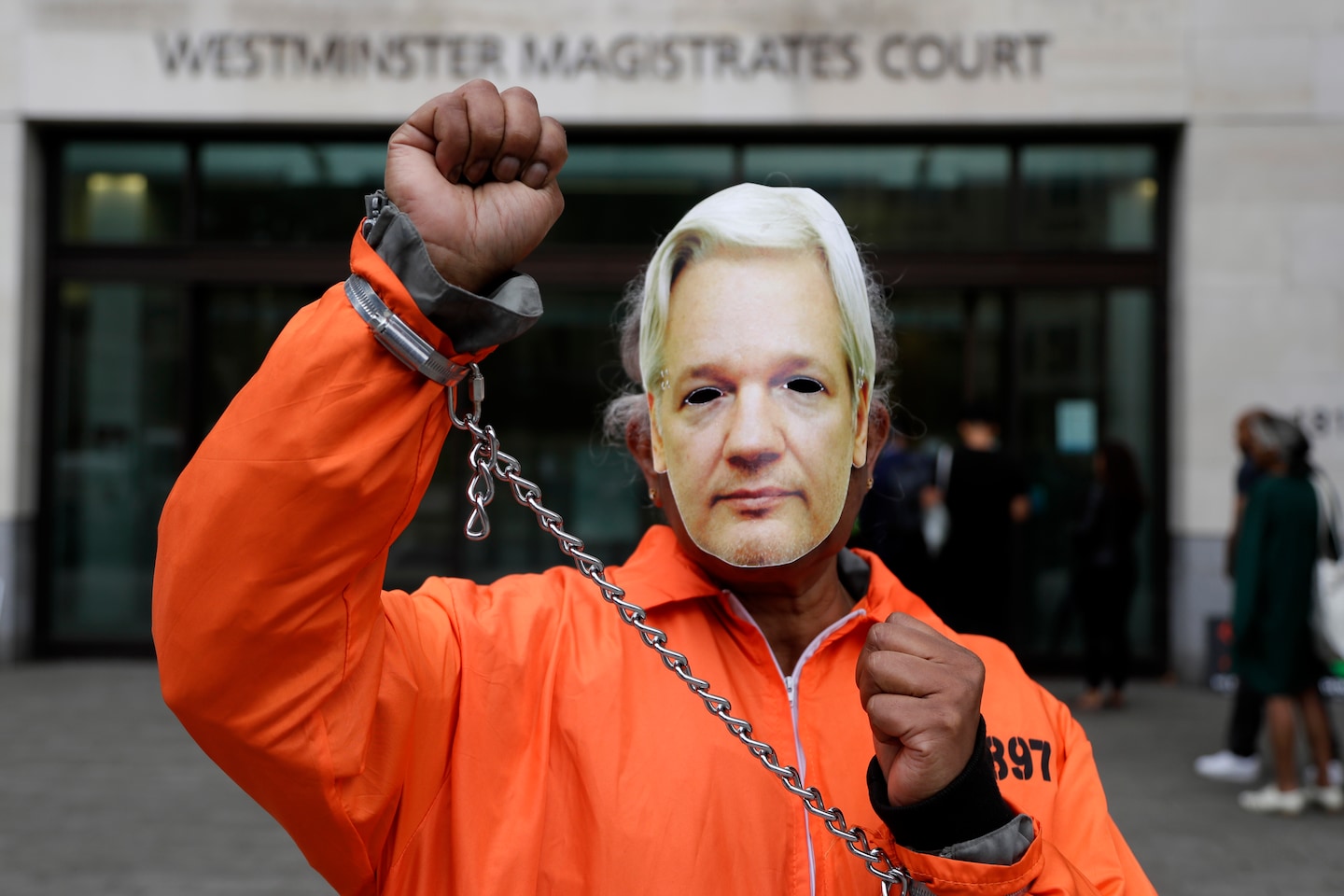Why Assange is on trial in London for extradition to the United States

Assange, 48, has been in prison outside London, after the Ecuadoran Embassy rescinded his political asylum in 2019. He had also faced rape charges in Sweden, but that case was dropped last year.
He appeared in person at the trial at the Old Bailey, the Central Criminal Court in London. On the first day of the evidentiary hearing, when asked if he consented to be extradited to the United States, he replied, “No.”
What is the British trial about?
The trial will not rule on whether Assange is guilty of any charge, but rather whether the British government can extradite him based on a 2003 treaty with Washington. Analysts say the terms of the agreement favor the United States, which must mainly prove there is reasonable suspicion that the crimes of which he is accused were committed.
The extradition hearings began in February and were then adjourned until May to allow the sides more time to prepare arguments. In April, the trial date was pushed back to September because of the coronavirus pandemic, as London’s lockdown prevented lawyers from reaching the court.
Once the arguments end, the judge is expected to deliberate for several months. The losing side could then appeal, possibly even to the European Court of Human Rights.
What are the main arguments?
The Trump administration wants Assange, an Australian citizen, to stand trial in a federal court in Virginia on charges of violating the U.S. Espionage Act, among other alleged violations.
In the initial hearing in February, U.S. government lawyer James Lewis told the court that Assange endangered the lives of informants when in 2010 he illegally obtained and published classified information related to the U.S. wars in Iraq and Afghanistan. The charges include accusations that he helped Army intelligence analyst Chelsea Manning hack government computers and attain and spread the classified documents.
“These are ordinary criminal charges, and any person, journalist or source who hacks or attempts to gain unauthorized access to a secure system or aids and abets others to do so is guilty of computer misuse,” Lewis told the court, according to NPR.
In 2013, the Obama administration considered whether to prosecute Assange but ultimately declined because of concerns that it could set a precedent for prosecuting journalists who share state secrets. The Trump administration consequently took the case back up and requested extradition.
Assange and his lawyers have pointed to this shift as support for their claim that the charges are political retaliation for having published unflattering information about Washington and its wars in Iraq and Afghanistan. They argue that the case is a precedent-setting assault on freedom of speech and media rights.
“President Trump came into power with a new approach to freedom of speech and a new hostility to the press amounting effectively to declaring war on investigative journalists,” Assange’s lawyer, Edward Fitzgerald, told Reuters in February.
Assange and his team also have argued that he wouldn’t receive a fair trial in the United States.
London-based Amnesty International has urged Britain to reject the request.
“The UK must abide by its obligations under international human rights law, which forbid the transfer of individuals to another country where they would face serious human rights violations,” Amnesty International’s Europe director, Nils Muiznieks, said in a statement Friday. “If Julian Assange is extradited it will have far reaching human rights implications, setting a chilling precedent for the protection of those who publish classified information in the public interest.”
Nick Vamos, a former head of extradition at Britain’s Crown Prosecution Service, told The Washington Post in February that given the “very, very high degree of mutual trust and deference between two friendly nations,” it would be difficult for Assange’s team to convince a British court that the U.S. system is unfair, “however much political intrigue is swirling around.”
Why is Assange imprisoned in Britain?
Assange is a polarizing figure, beloved as a whistleblowing patron of a free press or derided as an opportunistic hacker.
Britain initially sought custody of Assange based on a Swedish extradition request involving sexual assault and rape allegations there. But when they arrested him in 2019, authorities said it was “on behalf of the United States,” and a U.S. indictment was soon unsealed.






